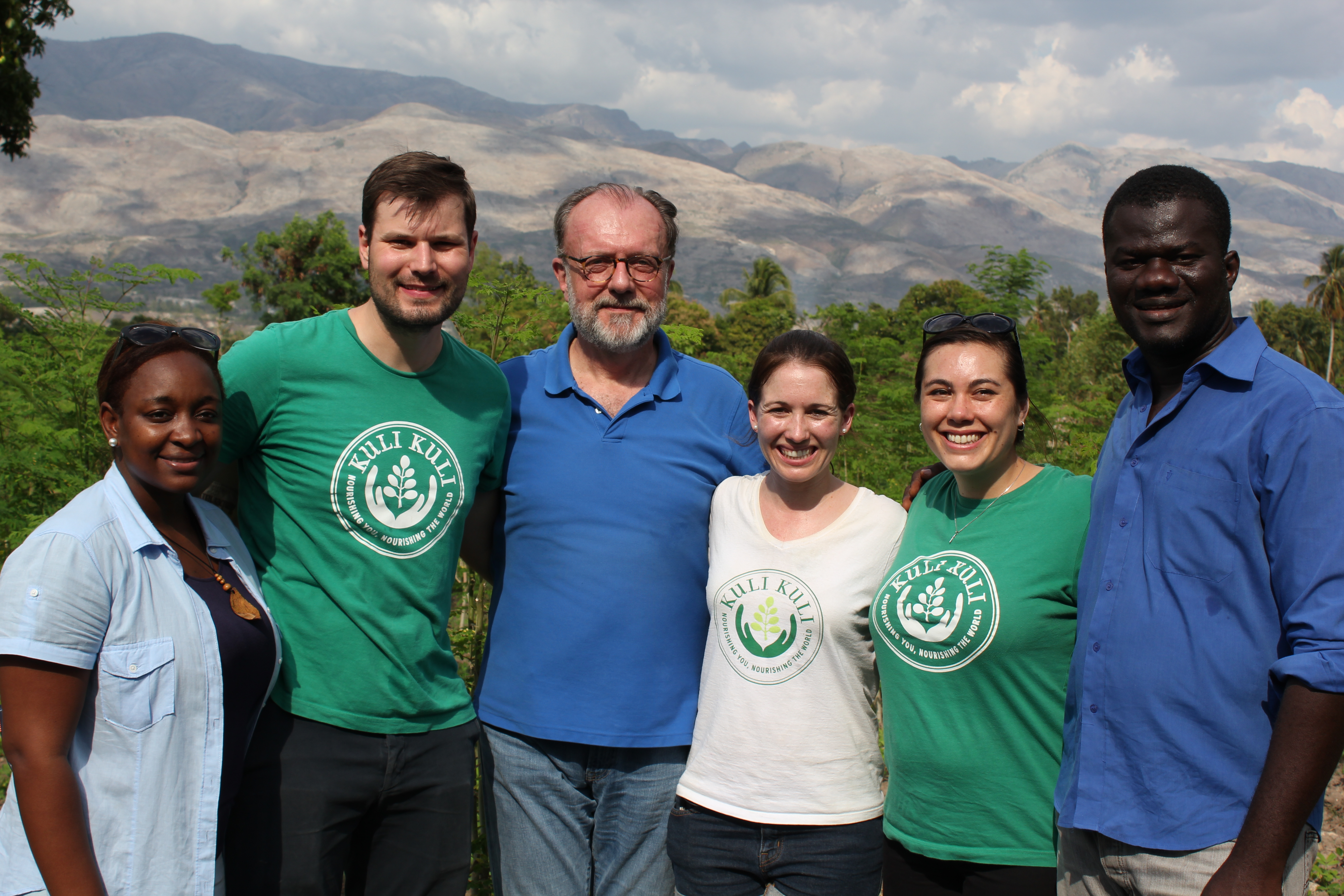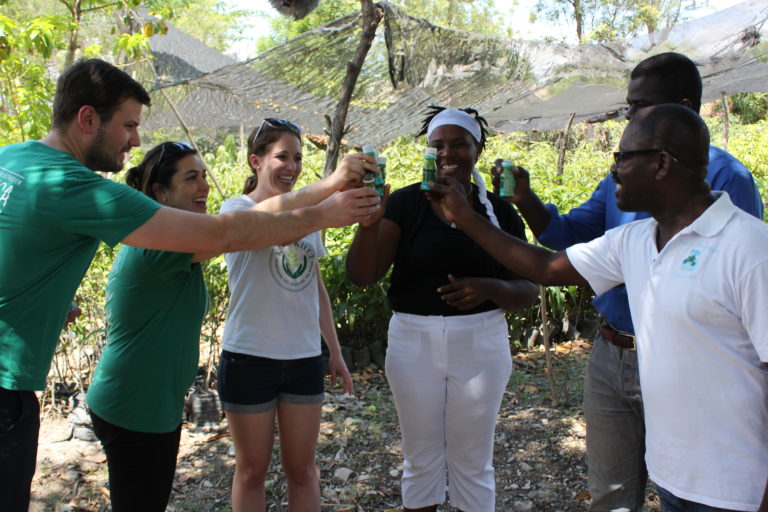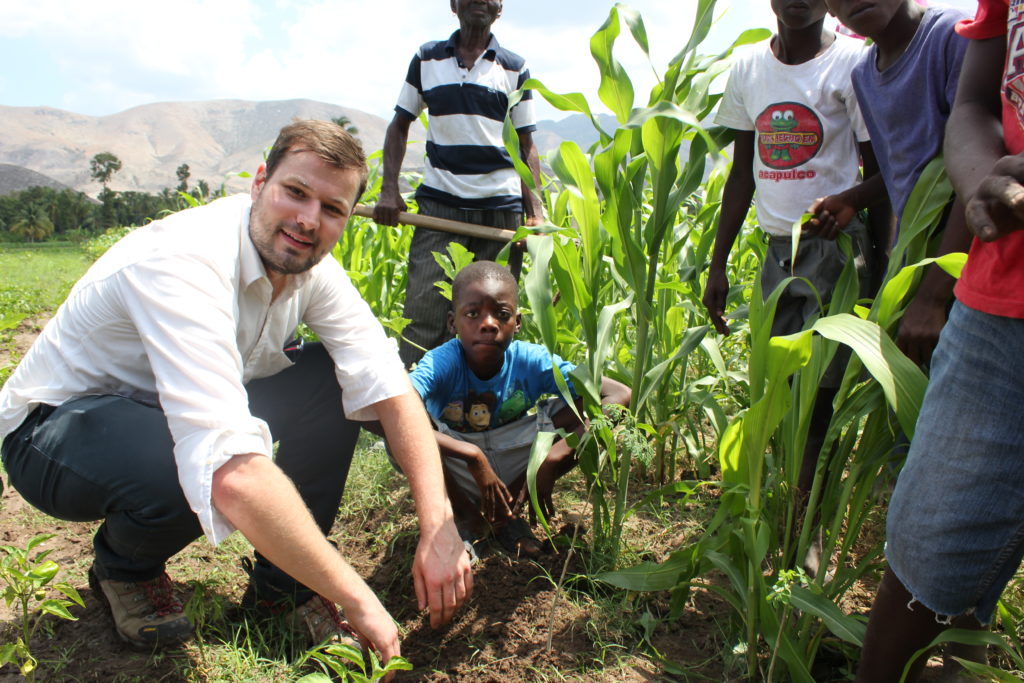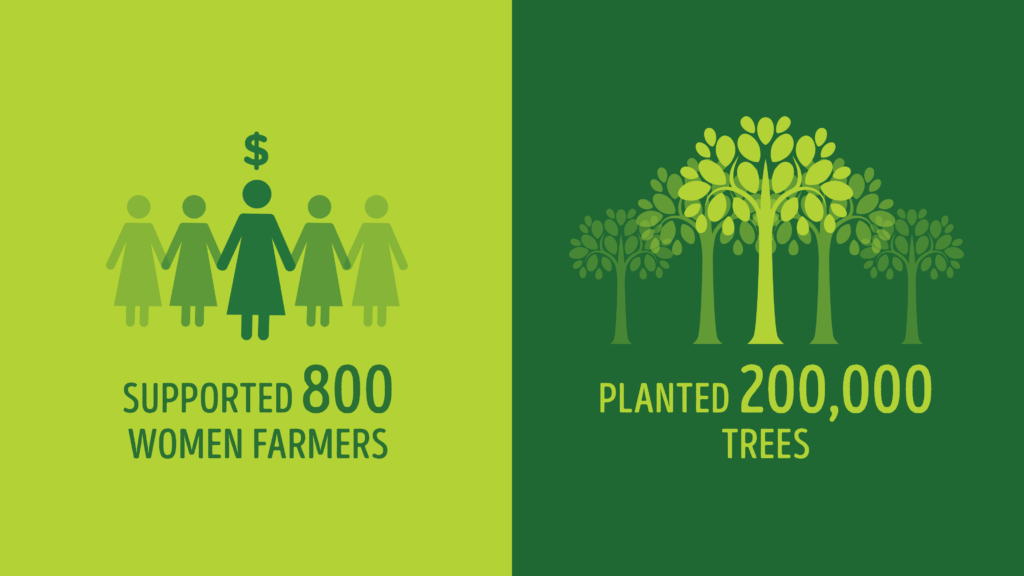
Every Earth Day people around the world take action to create a healthier environment. Tree planting is often a popular activity. Last year, a small Bay Area startup came up with a plan to sustainably plant trees year-round in the most deforested country in the world, Haiti.
The destruction of Haiti’s forest to clear the way for agriculture followed by intense tree felling for cooking fuel has resulted in the destruction of 98 percent of Haiti’s original forests. The estimated 30-40 million trees that are cut down every year has a costly effect on the environment, causing floods and mudslides, which in turn leads to a loss of nutrient-rich top soil and increases the amount of sediments deposited into the oceans. This negatively impacts the agricultural yields and marine resources, according to USAid.

Native to India but commonly found in countries around the world, moringa was first introduced to Haiti over a century ago and then largely forgotten. Moringa is the perfect tree for Haiti as it is drought tolerant and grows extremely quickly, flourishing year-round.
Kuli Kuli, along with the Haitian Smallholder Farmers Alliance (SFA) and other partners are planting moringa trees to combat deforestation in Haiti and produce a nutritious Moringa Green Energy Shot that is now sold in Whole Foods stores nationwide.

By creating a model of sustainable agroforestry – integrating the planting and conservation of trees and shrubs into farming systems – SFA has created a model of reforestation that uses smallholder farmers as champions for trees. Where previous “cash for work” models have failed, SFA’s agroforestry program thrives by incentivizing farmers to plant trees in exchange for seeds, training and access to a market for their tree crops. The moringa tree-planting is fueled by the fair market price that Kuli Kuli pays for Haitian-grown moringa.

Haitians have already responded positively to moringa. When Kuli Kuli CEO Lisa Curtis visited Haiti earlier this month, she reported that the Haitians really seemed to enjoy the shots themselves and that they love having access to a larger market.
Michel Chancy, the secretary of state for animal production, even notes that moringa trees can be used to provide shade for coffee plantations – a source of income for more than 100,000 Haitian farmers. Somerville, MA chocolate company Taza also uses agroforestry to help pioneer tree planting in Haiti. Taza uses stone-grinding methods to create single-sourced chocolate bars from organic Haitian-grown cacao.
In the near future, Kuli Kuli will also be working to use moringa in schools to feed children and address malnutrition issues. Because of its high nutritional profile, moringa has been used to treat rickets in Senegal and Mali and could reduce the current global mortality rate of 670,000 children who die every year from Vitamin A deficiency.
To date, Kuli Kuli has supported more than 800 women farmers and planted over 200,000 trees around the world.
If you’re interested in learning more about SFA’s efforts in Haiti, consider downloading and screening the documentary Kombit: The Cooperative. “Kombit” is a Haitian Creole term used to define a community working together towards a common goal. Screenings are being held around the world this Earth Day and all summer. Consider hosting your own screening.
Every Moringa Green Energy Shot purchased means more demand for Haitian-grown moringa, which will enable Kuli Kuli and SFA to plant more trees in Haiti and support the growing cooperative of 2,000 moringa farmers. This Earth Day, purchase Kuli Kuli’s moringa products and do something good for you, Haiti, and the planet.
Watch this video and learn more about how Kuli Kuli works with SFA to reforest Haiti:










